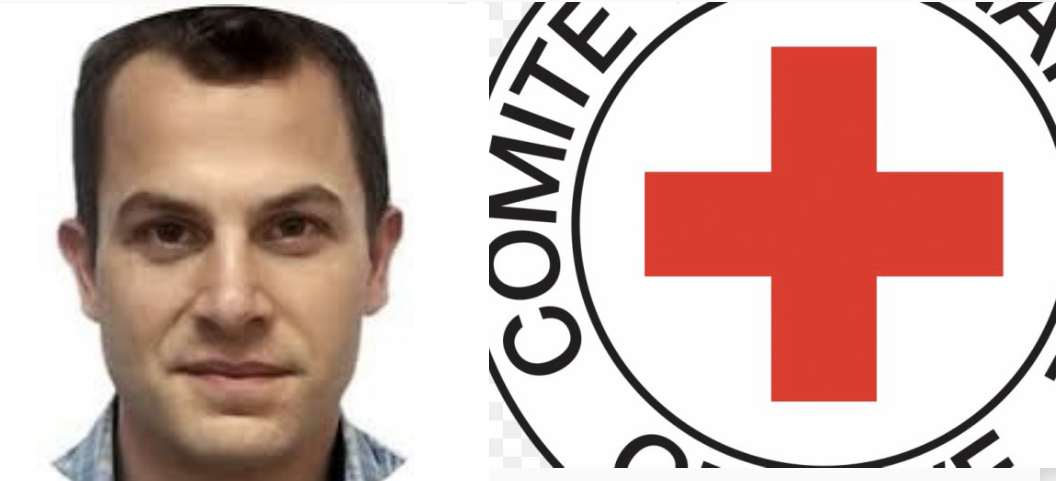By Hailu Deribe
The Ethiopian Red Cross Society (ERCS) said Western media are “misquoting” its statements, particularly AFP Africa’s correspondent Robbie Corey-Boulet. In a press release Thursday, the aid group ERCS said their organization has already reached 20% of Tigray but they don’t have the “capacity and resources” to reach the rest of Tigray. However, AFP’s journalists falsely stated that 80% of Tigray is “unreachable” in a manner that suggests that the government has “cut off” those areas from humanitarian aid.
“We are really perplexed by AFP Africa,” the aid organization said on Thursday, calling the AFP report “totally unfounded.”
This is not the first time AFP’s Robbie Corey allegedly misquoted or published a story without seeking verification and context. He previously said up to 4 million people have no healthcare in Central Tigray, though the total number of people living in that area itself are well under 3 million. And for context, not only in Tigray, in many parts of Ethiopia, healthcare access is minimal in the first place and such problems are not a direct consequence of Tigray’s conflict (triggered by TPLF’s insurrection, not by federal government). According to an Eritrean refugee interviewed by Awasa Guardian, the TPLF forces have stolen medical necessities even from inside Eritrean refugee camps. And most other abuses in Tigray were not caused by authorities, including the infamous Maikadra massacre caused by Tigrayan militias as well as airports and infrastructure damaged by the TPLF.
However, in order to depict a humanitarian crisis in Tigray worse than it actually is, and scapegoat only one side (federal authorities) some Western journalists have been accused of using sensational headlines and quoting dubious sources without fact-checking. Last month, several western media spread fake news that 52,000 Tigrayan civilians have been killed by the Ethiopian government. It is impossible to tally the death toll in Tigray but the source of that dubious death toll was TPLF operatives who created an alternative “opposition party” in 2020 to rubberstamp and legitimize TPLF’s unauthorized “election” where it won 99% of the vote.
In this case with the Red Cross, AFP’s Robbie Corey is accused of rushing to misquote and rephrase a small portion of ERCS’s statement that had the best potential for shock value. His inaccurate report thus spread quickly and was reproduced by international media.
Such unethical tactics are often used by tabloid newspapers and some professional journalists working in third world countries, as they are unlikely to face punishment from their own employers. These western journalists usually employ the defense (a circular reasoning) that 3rd world countries are unstable & unfriendly to journalists, which makes the public overlook the journalists’ original violation. In many cases, those countries are, in fact, undemocratic and end up expelling the journalist out of the country; which ironically helps raise the profile of the unethical journalist, instead of facing accountability from the employer and industry.
In third world countries like Ethiopia, misquoting and misleading reports by western media have dangerous consequences that fuel dissident and perpetuate conflict. In recent days, World Food Program (WFP)’s Director David Beasley, UNICEF and other humanitarian organizations have announced that they are already providing humanitarian aid to areas in Tigray not covered by the ERCS. Despite obstacles (which include insecurity caused by ambushes on aid convoys and isolated attacks by TPLF remnants), Ethiopia has actually made drastic improvements by providing humanitarian aid to most places in Tigray.
However, the wrong headlines in Western media duplicated and multiplied the misleading and erroneous reporting by AFP’s Robbie Corey that portray as if authorities in Ethiopia are intentionally blocking aid to 80 % of Tigray. It is unlikely that AFP will apologize and make a correction, but even if they do, corrections often do not reverse the damages already done. This inaccurate AFP report have already been shared by tens of thousands, including by foreign government officials, diplomats and other media outlets who were not aware that it is actually fake news.
Many experts have warned of the prevailing misinformation crisis in Ethiopia and have asked journalists to avoid pursuing sensationalism over substance. Among them is Billene Seyoum who cautioned that such violations by unethical journalists actually perpetuate violence and embolden criminals in the conflict area.




